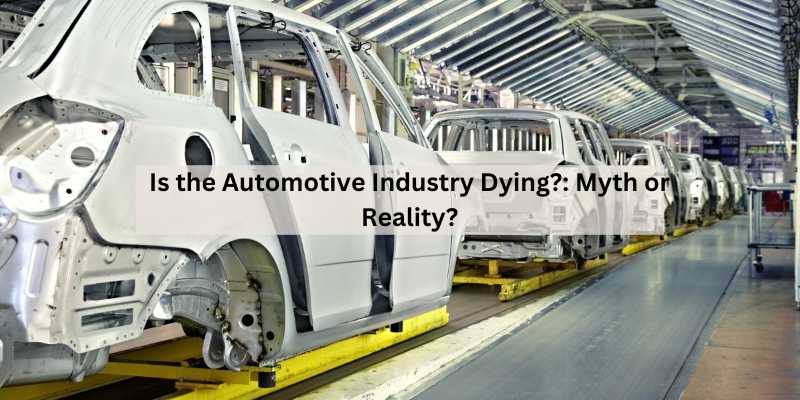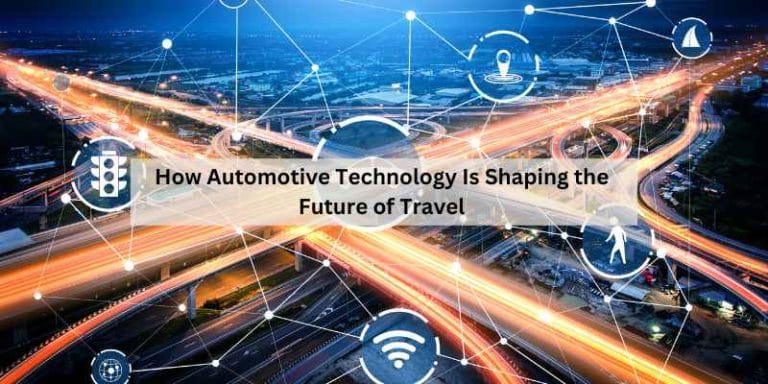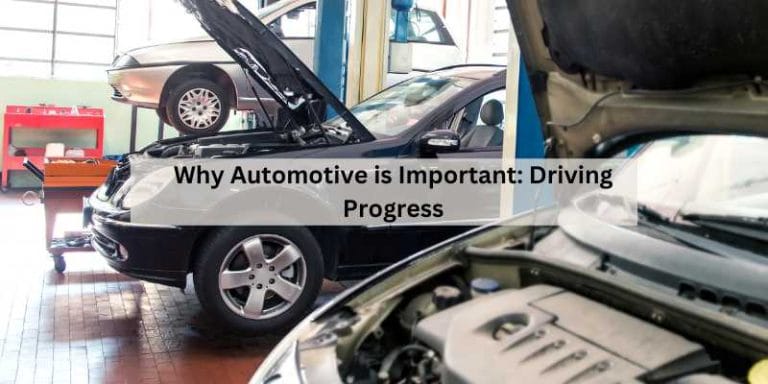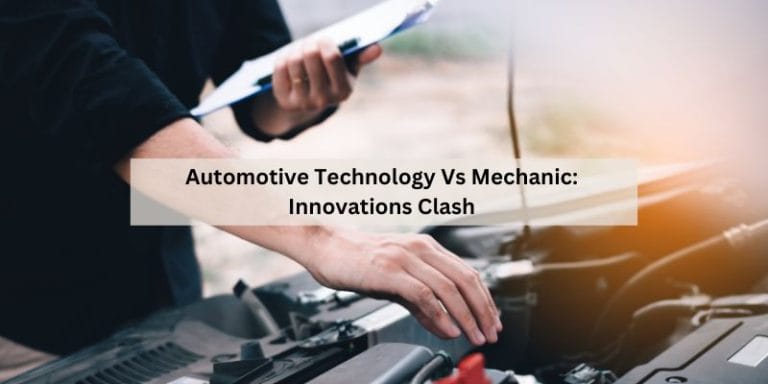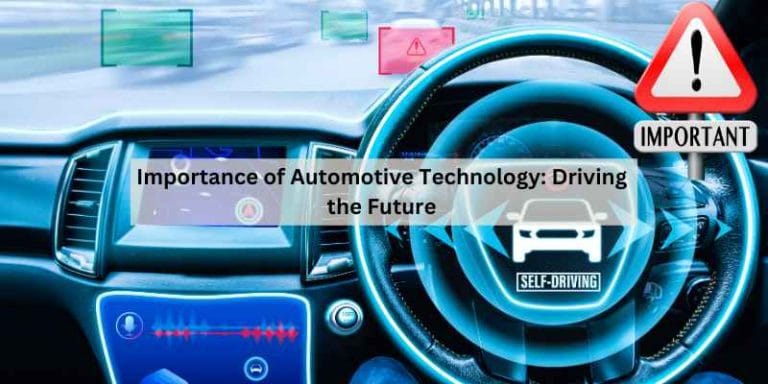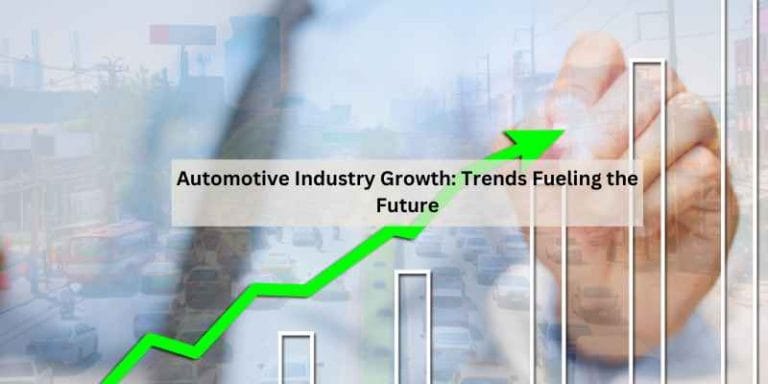Is the Automotive Industry Dying?: Myth or Reality?
The automotive industry is not dying; rather, it is facing challenges and undergoing significant changes. The COVID-19 pandemic, supply chain disruptions, increased production costs, and shifts in consumer preferences have all impacted the industry.
However, it is also an opportunity for growth, innovation, and sustainability. Automakers are adapting by investing in electric vehicles and autonomous technology. While there are concerns and adjustments being made, the automotive sector continues to evolve and remains an important part of the global economy.
Introduction To The Debate
Debating the future of the automotive industry sparks questions about its vitality and potential decline. Is the automotive industry dying, or is it undergoing a transformation that presents new opportunities for growth and innovation? The discourse around this topic delves into the shifting landscape of the automotive sector.
There has been an ongoing debate about the future of the automotive industry. While some experts predict a bright future for the industry, others believe that it is dying. This debate is fueled by various factors such as shifts in consumer behavior, economic indicators, and predictions.
Shifts In Consumer Behavior
One of the reasons why some experts believe that the automotive industry is dying is the shift in consumer behavior. In recent years, there has been a growing trend towards ride-sharing services, car-sharing programs, and alternative modes of transportation. This shift in consumer behavior is driven by various factors such as increasing urbanization, environmental concerns, and changing lifestyles. As a result, many people are choosing to forego car ownership, which could have a significant impact on the automotive industry.
Economic Indicators And Predictions
Another factor that contributes to the debate about the future of the automotive industry is economic indicators and predictions. While some indicators suggest that the industry is thriving, others paint a bleaker picture. For example, the COVID-19 pandemic has had a significant impact on the industry, with many car manufacturers experiencing a decline in sales. Furthermore, there are concerns about the rising costs of production and increasing competition from new entrants into the market.
Historical Success Of Automotive Industry
The automotive industry has a rich history of innovation and economic impact, contributing to the growth and development of economies worldwide. Let’s explore the historical milestones and the economic influence of this industry over the decades.
Milestones In Auto Innovation
- 1886: Karl Benz invents the first gasoline-powered automobile, the Benz Patent-Motorwagen.
- 1908: Ford introduces the Model T, revolutionizing mass production and making cars more accessible.
- 1966: The first electronic fuel injection system is developed, improving fuel efficiency and performance.
- 2008: Tesla Motors launches the Roadster, bringing electric vehicles into the mainstream market.
Economic Impact Over The Decades
The automotive industry has been a major driver of economic growth, creating jobs and contributing to GDP in various ways:
| Decade | Economic Impact |
|---|---|
| 1950s | Mass production techniques lead to economic boom, creating jobs and increasing consumer spending. |
| 1980s | Global expansion of automotive companies boosts international trade and investment. |
| 2010s | Rise of electric and autonomous vehicles stimulates innovation and attracts new talent to the industry. |
Current Challenges Facing Automakers
The automotive industry is currently facing a myriad of challenges that are impacting the operations and profitability of automakers. From supply chain disruptions to rising production costs, automakers are grappling with various obstacles that are reshaping the landscape of the industry.
Supply Chain Disruptions
Automakers are experiencing significant supply chain disruptions, impacting the timely procurement of essential components and materials. The global shortage of semiconductors has severely affected the production of vehicles, leading to production delays and inventory constraints.
Rising Production Costs
Automakers are contending with escalating production costs, driven by increased material and labor expenses. The rising costs of raw materials, such as steel and aluminum, coupled with higher wages, are putting pressure on automakers to maintain competitive pricing while safeguarding their profit margins.
Impact Of Technological Advances
The automotive industry is facing a fundamental shift due to technological advances. With the rise of electric and autonomous vehicles, the industry is transforming, and some may argue that it is dying. However, there is still potential for growth and innovation in this changing landscape.
Electric Vehicles On The Rise
The rise of electric vehicles is one of the biggest impacts of technological advances on the automotive industry. With the push towards a more sustainable future, many countries and cities are implementing regulations that encourage the use of electric vehicles. This has led to an increase in demand for electric cars, which has in turn led to more investment in research and development for electric vehicle technology.
One of the advantages of electric vehicles is their lower operating cost compared to traditional gasoline-powered cars. They also produce less emissions, making them a more environmentally friendly option. As battery technology improves, electric vehicles will become more accessible and affordable for a wider range of consumers.
Autonomous Driving Technology
Another significant impact of technological advances on the automotive industry is the development of autonomous driving technology. Self-driving cars have the potential to revolutionize the way we travel, making it safer and more efficient. This technology is still in its early stages, but many companies are investing heavily in research and development in this field.
The benefits of autonomous driving technology include increased safety, reduced traffic congestion, and improved accessibility for people who cannot drive due to physical disabilities. However, there are also concerns about the impact of self-driving cars on employment, as many jobs in the transportation industry may become obsolete.
In conclusion, technological advances have had a significant impact on the automotive industry. With the rise of electric vehicles and the development of autonomous driving technology, the industry is undergoing a major transformation. While there are challenges and concerns associated with these changes, there are also many opportunities for growth and innovation.
Environmental Concerns And Regulations
The automotive industry is facing increasing pressure due to environmental concerns and regulations.
Emissions Standards Tightening
Stringent emissions standards are compelling automakers to develop cleaner technologies.
Sustainability In Manufacturing
Automotive manufacturers are focusing on sustainable practices to reduce environmental impact.
Consumer Trends And Market Dynamics
The automotive industry is undergoing significant transformations in response to shifting consumer trends and market dynamics. These changes are reshaping the way vehicles are utilized, owned, and serviced.
Shift Towards Mobility Services
The modern consumer is increasingly embracing mobility services as a convenient and cost-effective alternative to traditional car ownership. Ride-sharing, car-sharing, and on-demand mobility services have gained popularity, reflecting a shift towards access-based transportation solutions.
Changing Ownership Models
Ownership models are evolving, with consumers showing a growing preference for flexible ownership arrangements such as car subscriptions and leasing. This shift is driven by the desire for reduced financial commitment, freedom from maintenance responsibilities, and access to the latest vehicle models.
The Role Of Globalization
Globalization has significantly impacted the automotive industry, leading to increased competition and new market dynamics. While some may argue that the industry is declining, others see it as an opportunity for innovation and sustainable growth. The future of the automotive sector is undergoing a transformation, presenting both challenges and prospects for adaptation and advancement.
International Trade And Competition
The automotive industry faces fierce competition due to globalization.
Relocation Of Manufacturing Bases
Manufacturing bases are shifting globally to optimize costs and efficiency.
The automotive industry’s fate is intertwined with globalization, impacting international trade, competition, and manufacturing bases. Globalization exposes the industry to intense competition, prompting companies to seek cost-effective solutions.
Future Outlook For The Automotive Industry
The automotive industry is at a crossroads, facing challenges that require adaptation and innovation to secure its future.
Adaptation And Innovation
- Embracing electric vehicles and sustainable practices.
- Implementing advanced technologies like AI and autonomous driving.
- Expanding into new mobility services such as ride-sharing.
Predictions From Industry Experts
- Shift towards subscription-based services for vehicle ownership.
- Increased focus on cybersecurity in connected vehicles.
- Rise of data monetization and personalized customer experiences.
Conclusion: Myth Vs. Reality
The belief that the automotive industry is dying is a myth. Despite challenges, the industry is evolving with sustainable practices and innovative technologies, ensuring its future growth and adaptability. The shift signifies a new era of opportunity and advancement rather than decline.
Summarizing The Evidence
The automotive industry is facing significant challenges, but it’s not dying. The evidence suggests a transformation rather than a demise. Increased car prices, supply chain disruptions, and changing consumer preferences have caused disruptions, but the industry is adapting.
The Road Ahead For Automakers
Automakers need to embrace innovation, focus on sustainability, and adapt to changing market dynamics. Electric vehicles, autonomous driving technology, and sustainable practices will shape the future of the automotive industry. Collaboration with tech companies and investment in R&D are crucial for long-term success.
Frequently Asked Questions
Does The Automotive Industry Have A Future?
The automotive industry does have a future, but it is changing and evolving. There are challenges such as supply issues and increased production costs, but this also presents opportunities for growth and innovation. The industry is not dying, but rather shifting towards more sustainable and advanced technologies.
Is The Auto Industry Crashing?
The auto industry is facing challenges due to supply issues, higher production costs, and pricing shifts. However, it’s not crashing but evolving amid changing market dynamics.
Is The Us Auto Industry In Trouble?
No, the US auto industry is not in trouble. While there have been challenges, such as supply issues and increased production costs, the industry continues to grow and adapt. Automakers are scaling back or delaying electric vehicle plans, but the sector as a whole remains profitable.
Why Is The Car Industry So Bad Right Now?
The car industry is currently facing challenges due to several factors. The pandemic caused supply issues, increased production costs, and higher profit expectations, leading to a surge in new car prices. This has had a negative impact on the industry.
However, the automotive sector still has a future and opportunities for growth and innovation.
Conclusion
While there are challenges and shifts happening within the automotive industry, it is not dying. The industry is evolving and adapting to new technologies, consumer demands, and environmental considerations. Automakers are investing in electric vehicles and exploring innovative solutions for sustainable transportation.
The future success of the automotive industry lies in its ability to embrace change, foster innovation, and attract and retain a skilled workforce. By doing so, the industry can continue to thrive and contribute to economic growth and mobility.

